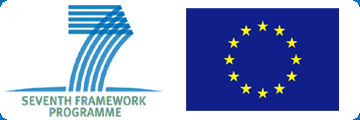Energy Challenges in the Middle East and North Africa

By Edward Burke, Ana Echagüe and Richard Youngs
Working Paper No. 2 - October 2008
To download the full publication
click here (422 KB)
Summary
In 2020 the European Union will be more dependent on oil and gas from the Middle East and North Africa (MENA), and will also face tougher international competition for access to the region’s supplies. Within the MENA region, a rapidly increasing population, authoritarian forms of governance and an enhanced risk of further conflict in the region provide a complex set of challenges for its emerging relationship with the EU. This paper demonstrates the inextricable links between the energy trade and the future governance of the MENA region and outlines some of the related challenges to EU policies. Among the conclusions reached by the authors are the following:
- While the MENA region enjoys increasing energy wealth it also suffers from growing inequality and pockets of absolute poverty. It would be a mistake for Europe to see energy imperatives in the region as only geopolitical rather than developmental and governance-related in nature.
- The recent increase in oil and gas revenues masks ever more serious challenges to economic development and a deepening of energy poverty in the world’s largest holders of oil and gas reserves. The current global economic downturn will also affect the ability of producer states to diversify their economies to provide employment and better living standards for the citizens of these countries.
- The governments of MENA region remain wedded to overly statist models of development that are yet to show concrete signs of succeeding where they have failed in the past. The bedrock of economic growth remains energy resources and the real test of the resilience of state-led diversification projects during a time of reduced oil and gas prices is yet to come.
- There is a striking lack of publicly available information regarding the energy sector and the use of state finances. This mirrors a general lack of transparency in the region and hinders investment in the MENA region.
- A comprehensive EU approach that links energy to economic and political development is at best nascent – or even, in some cases, a more distant prospect. The shift has not been made from focusing on the ‘hardware’ of energy security (pipelines, contracts etc) to its ‘software’ (the good governance of energy resources).
